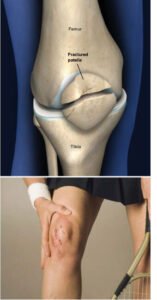Over-the-Counter Medications for Migraine and Headache Relief
Over-the-Counter Medications for Migraine and Headache Relief
Migraines and severe headaches affect a significant portion of the population. In fact, one in every six Americans experiences migraines or intense headaches. Over-the-counter (OTC) medications are commonly used for migraine relief because they are widely available, affordable, effective, and generally have fewer side effects than prescription medications. Popular OTC medications for migraines include:
-
Aspirin (e.g., Bayer)
-
Ibuprofen (e.g., Advil and Motrin)
-
Naproxen (e.g., Aleve)
-
Acetaminophen (e.g., Tylenol)
Non-Steroidal Anti-Inflammatory Drugs (NSAIDs)
NSAIDs, including ibuprofen, naproxen, and aspirin, are commonly used for migraine relief as they reduce inflammation and alleviate pain. While both NSAIDs and acetaminophen are considered first-line treatments for migraines, NSAIDs are often preferred due to their effectiveness in reducing migraine-related pain, provided they are tolerated. However, all NSAIDs can cause stomach upset and may increase the risk of bleeding, including symptoms like bruising, slow healing, nosebleeds, and blood in stools or urine.
If you have kidney or heart issues, or a history of stomach bleeding, consult with your healthcare provider before taking NSAIDs. Be sure to follow dosing instructions carefully, as they can vary across different NSAIDs. Popular OTC NSAIDs include:
-
Ibuprofen: Known as Motrin or Advil, ibuprofen is generally well tolerated and works quickly, although it stays in the system for a shorter period, meaning additional doses might be needed for longer-lasting migraines.
-
Naproxen: Marketed as Aleve, naproxen takes longer to start working than ibuprofen but has a longer half-life, making it effective over a longer period.
-
Aspirin: One of the most widely used NSAIDs, aspirin is an anti-inflammatory, pain reliever, and blood thinner. However, it is more likely to cause bleeding and can have side effects such as a rash or ringing in the ears. It can also trigger severe allergic reactions, including facial swelling and breathing problems.
Before using aspirin, consult with your healthcare provider, especially if you take it daily for other health reasons. Avoid combining aspirin with other NSAIDs unless directed by a doctor.
Acetaminophen for Migraine Relief
Acetaminophen, commonly known as Tylenol, is a well-tolerated first-line treatment for headaches, including migraines. It is a good alternative for individuals who cannot tolerate NSAIDs. However, acetaminophen overdose is the leading cause of liver failure in the Western world, and long-term use can cause liver or kidney damage.
It’s crucial to avoid combining acetaminophen with alcohol. If you have liver disease or take acetaminophen regularly, consult your healthcare provider. For adults, the recommended maximum dose is 3,000 mg per day, with some guidelines allowing up to 4,000 mg under a healthcare provider’s supervision.
Combination OTC Medications
Some OTC medications combine multiple active ingredients to enhance effectiveness. A popular combination medication for migraines is Excedrin, which contains acetaminophen, aspirin, and caffeine. Caffeine constricts blood vessels, counteracting the vasodilation (expansion of blood vessels) associated with migraines. While this can provide relief, caffeine may interfere with sleep, so nighttime formulations may replace caffeine with diphenhydramine citrate, an antihistamine that promotes sleep.
Although effective, combination medications can cause side effects such as stomach upset, anxiety, and dizziness. Always be mindful of the ingredients in combination medications, especially if you are also taking other medicines containing acetaminophen. Too much acetaminophen can cause liver damage, and mixing multiple NSAIDs can increase the risk of ulcers or gastrointestinal bleeding.
Important Considerations for Safe Medication Use
When using OTC medications, always follow dosing instructions and avoid accidental overdoses. If you experience persistent or worsening symptoms despite medication, or if you find yourself relying on OTC pain relievers frequently, consult your healthcare provider. Overuse of medications can lead to Medication Overuse Headache (MOH), where regular use of OTC medications can trigger more frequent headaches.
It’s also essential to avoid giving aspirin to children or adolescents unless specifically directed by a healthcare provider. Aspirin use in young people has been linked to Reye’s syndrome, a rare but life-threatening condition that affects the liver and brain.
Migraine Treatment During Pregnancy
Acetaminophen is generally considered safe for use during pregnancy as a first-line treatment for migraines. If it proves ineffective, your healthcare provider may suggest NSAIDs, but only during the first trimester and for a short period. Always consult your healthcare provider before taking any medication while pregnant.
Alternative OTC Treatments for Migraines
Aside from traditional medications, some alternative OTC treatments may help manage migraines. These include migraine headbands, aromatherapy, and CBD products. Some individuals also use supplements to prevent migraines. Additionally, treatments like cognitive behavioral therapy (CBT) have been shown to reduce migraine frequency and intensity.
Acupuncture is another alternative therapy that may provide relief for some people suffering from chronic migraines.
Key Takeaways
-
OTC medications like NSAIDs, acetaminophen, and combination treatments can be effective for migraine relief.
-
Always follow dosing instructions carefully to avoid overdose and side effects.
-
Consult your healthcare provider if you experience frequent migraines or if OTC medications are not effective.
-
Pregnant women should consult their doctor before using any medication.
-
Consider alternative treatments like acupuncture or CBT for additional migraine management options.






